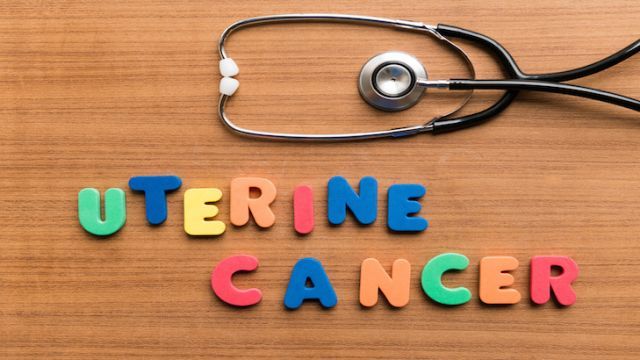
Uterine cancer is the fourth most common cancer for women in the United States, according to the Center for Disease Control and Prevention. Older, postmenopausal women are at higher risk than younger women who still get their periods. If caught early, most cases of uterine cancer are very curable. The initial signs — such as indigestion or constipation — are subtle, but any such symptoms require a prompt visit to the gynecologist.
Types of uterine cancer
Uterine cancer falls into two primary types. By far the more common type is endometrial cancer, or cancer of the uterine lining (the endometrium). Uterine sarcoma, which develops in the muscles and supportive tissues of the uterus, is less common and affects approximately five percent of women diagnosed with uterine cancer.
Postmenopausal women should not get occasional periods
Once you have stopped menstruating for at least a year, you are considered postmenopausal. If you experience any vaginal bleeding, that’s a red alert. It is not normal for truly postmenopausal women to get occasional periods. Early signs of uterine cancer include very light, pinkish discharges. If you start spotting, even very slightly, call your doctor.
If you’re not menopausal but have spotting between periods, that’s a possible indication of uterine cancer.
Other signs of uterine cancer
Besides spotting or abnormal periods, signs of possible uterine cancer include:
- Pelvic pain
- Prolonged periods
- Unusual discharge
- Pain during intercourse
Unlike breast cancer, there is no standard screening procedure for uterine cancer. A Pap smear looks for cervical cancer, not uterine cancer. That’s why it’s crucial to contact your doctor if you experience any symptoms, no matter how minor.
Later stage signs
For women who missed the early signs of uterine cancer, later signs include:
- Weight loss
- Pelvic pain
- A lump or mass in the area
The sooner you start your treatment, even at a later stage, the better your odds.
Risk factors
Besides age, risk factors for uterine cancer include:
- Obesity
- Diabetes
- Family history
- High blood pressure
- Hormone replacement therapy use
- Early onset of menses, late menopause
- Prior breast or ovarian cancer
- Pelvic radiation therapy
- Infertility
- Use of tamoxifen for breast cancer treatment
Women who take birth control pills long term have a lower risk of endometrial cancer than other women, according to the American Cancer Society. That’s also true of women who used an intrauterine device (IUD) that did not contain hormones. Women who had several pregnancies are at lower risk than those who never had children or only had one or two pregnancies.
Uterine cancer diagnosis
To diagnose uterine cancer, your doctor will perform a transvaginal ultrasound. This procedure takes a picture of the uterus to view tumors or abnormalities. Your doctor will then conduct an endometrial biopsy. The tissues removed during the biopsy are sent to a pathologist, who determines whether cancer cells are present.
Uterine cancer treatment
If you are diagnosed with uterine cancer, treatment depends on the stage of the disease. Women at any stage of the disease will usually undergo a hysterectomy, or surgical removal of the uterus. Often, the ovaries and fallopian tubes are also removed. If a woman’s health precludes surgery, radiation is an alternative if the cancer has not spread beyond the uterus.
For women with early stage cancer, a hysterectomy may be the only treatment necessary. The five-year survival rate for women diagnosed with early stage endometrial cancer that has not spread is about 95 percent, according to Cancer.net. Women with localized — no spreading — uterine sarcoma have somewhat lower five-year survival rates, but they are still relatively high. Women diagnosed with a later stage cancer will likely undergo radiation and/or chemotherapy.
A cancer diagnosis is always traumatic, but fear of cancer is not a reason to forego a visit to the doctor if you suspect something is wrong. In the case of uterine cancer, most women go back to normal activities once they recover from the hysterectomy and remain cancer-free. Besides contacting your doctor if you experience any symptoms, make sure to have an annual gynecological exam.
— Jane Meggitt

